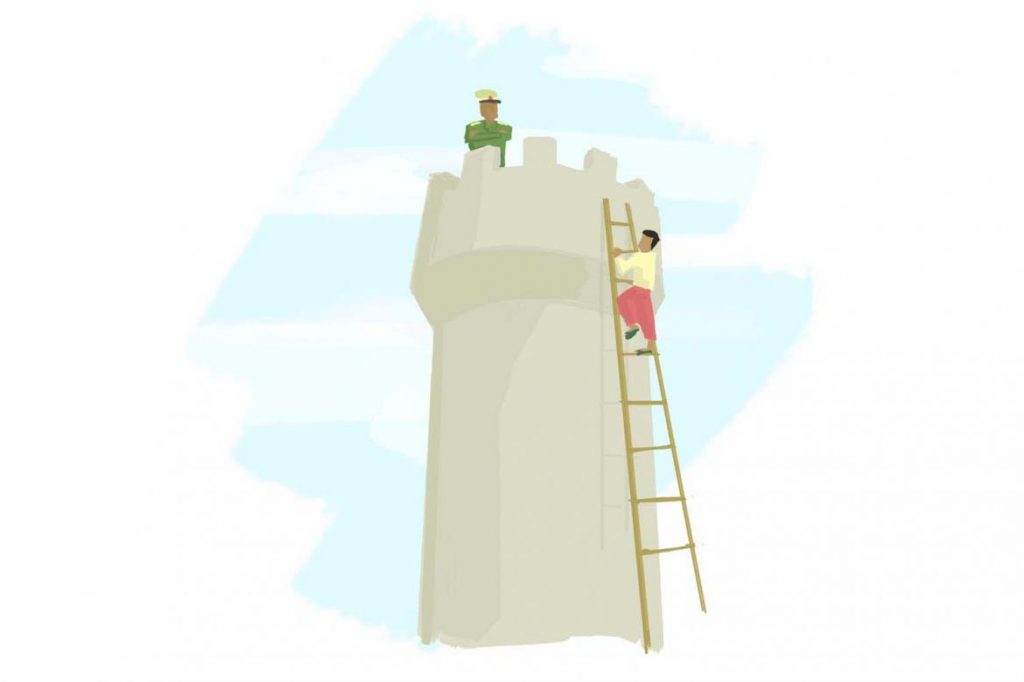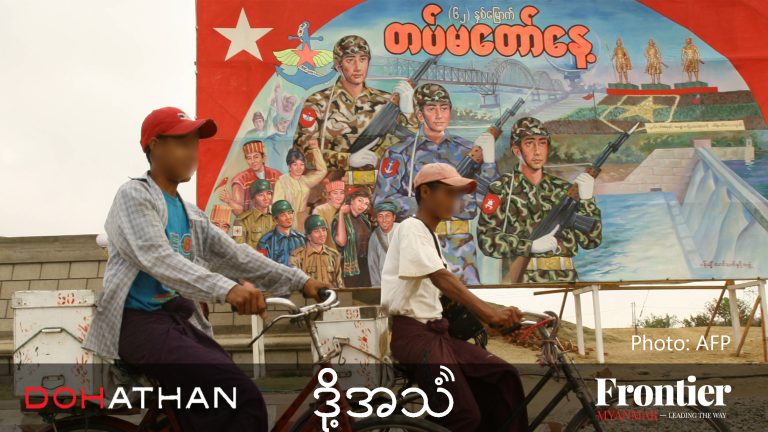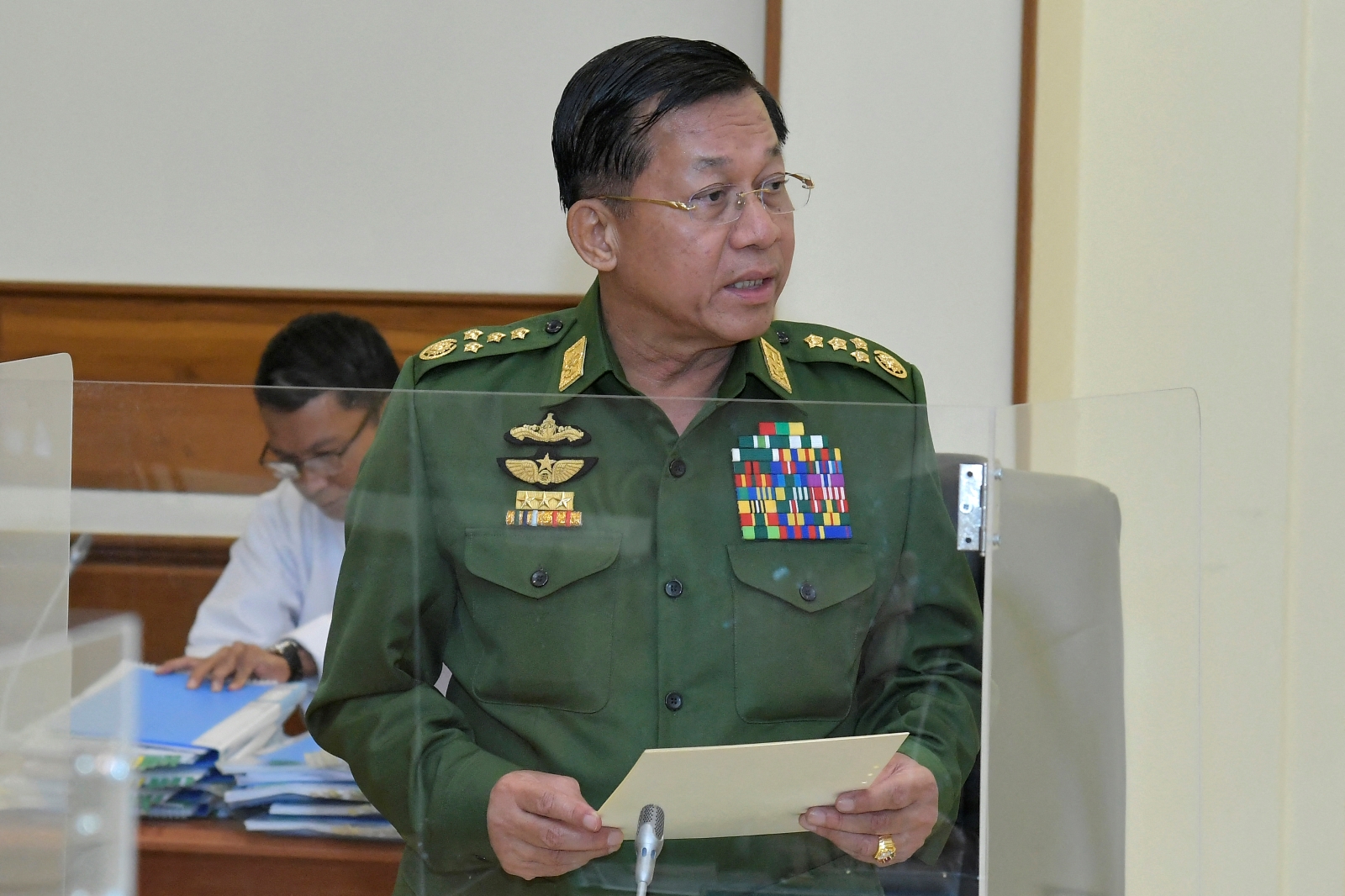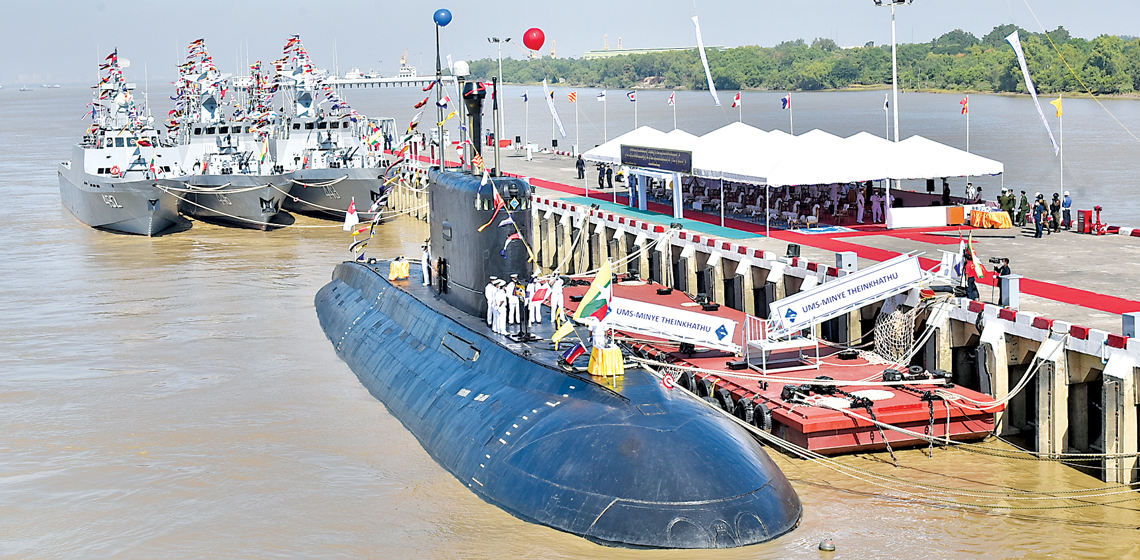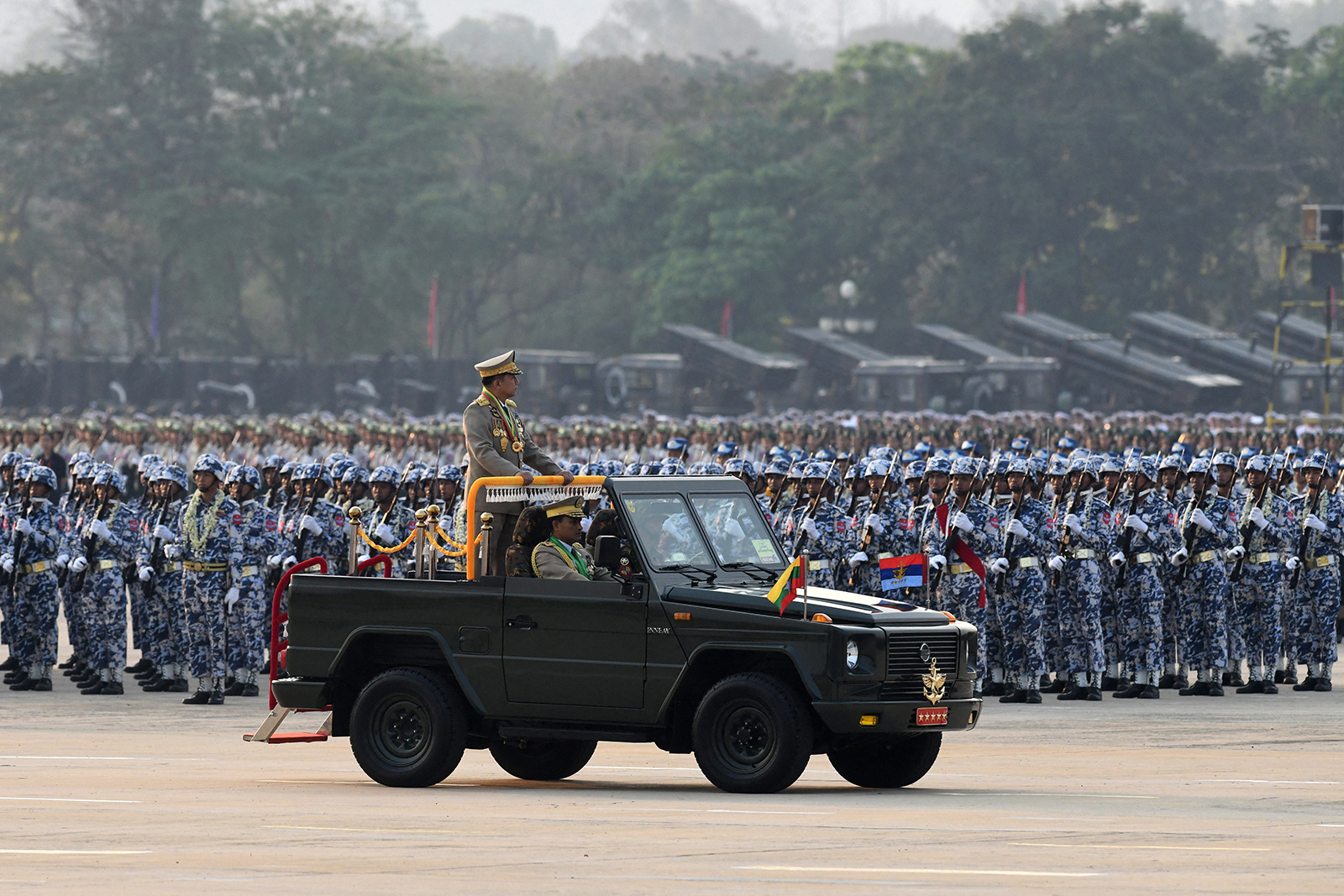Control over avenues of social mobility has ensured Tatmadaw dominance, but greater freedoms in society and exposure to the world means its privileged position might not last in the long run.
By DAVID I STEINBERG | FRONTIER
CIVILIAN CONTROL over the military has been a hallmark of Western political theory and practice in the modern era. Such a position coincides – and is probably partly dependent on – the rise of representative government as an important norm. Western aid programmes have often promoted transitions to civilian control. But aside from communist states, where the military is theoretically supposed to be under the authority of the party, the reality is far more nuanced.
Among Asian states in which the military has for significant periods held control or had extensive influence, Myanmar is unique. In Indonesia, Pakistan, South Korea and Thailand, military regimes were all interspersed with civilian governments. But the Tatmadaw has directly and indirectly governed Myanmar since 1962. Some might even argue this has been the case since independence in 1948.
Since 2011, Myanmar has been called a “quasi-civilian” or “quasi-military” state. The Tatmadaw’s position has been paramount; its built into the constitution it promulgated in 2008, under which it dominates coercive and bureaucratic activities, as well as ethnic affairs. The constitution also specifically states that the Tatmadaw should play a leading role in political life. The question that should be asked, then, is why this should have been the case? Why has the Tatmadaw in the modern era been unique in Asia, and perhaps in the world, in its longevity of control and/or influence over the state?
The West generally regards any military in power anywhere as grasping and greedy for power and wealth. This simplistic explanation ignores the real patriotism of many in all armed forces. In Myanmar, the Tatmadaw has sought national unity and dignity, disdaining civilian politicians as either corrupt, venal or both, and ethnic minorities as bent on subverting the fragile national “Union”.
Support more independent journalism like this. Sign up to be a Frontier member.
The Tatmadaw’s disastrous social and economic policies in the past should not obscure the positive intent of many. Their paramount position and intolerance of dissent may have given them an inflated sense of their own efficacy. Many in the Tatmadaw could argue that they promised in the early 2000s multi-party elections and a civilianised regime, and thus have been successful. This is accurate only on the surface; the iron grasp of the Tatmadaw now comes with a velvet, civilianised glove.
Some might argue that military domination has been because of the Tatmadaw’s control over extensive economic assets. This is, however, an effect rather than a cause. Although it is true that the South Korean military had no independent economic assets and gave up power most easily, it is also true that the Indonesian military continues to have significant economic influence, as do the armed forces in Pakistan and Thailand. The Tatmadaw admired the dwi fungsi (dual civilian and military) fuctions of the Indonesian military.
A more basic question is: Why was the Tatmadaw able to control such a broad spectrum of the economy and various industries and sectors? For that we must consider an even more fundamental cause.
The Tatmadaw is singular in its influence not because it has been better trained or equipped, or because its leadership came from a special social or privileged class or group. Rather, in contrast to other armed forces in Asia, the Tatmadaw since 1962 had a unique strategic advantage: it has been able to control all the avenues of social mobility. No other military in Asia has been able to do so.
All power has been centred on the Tatmadaw since General Ne Win started the comprehensive socialist programme that eliminated private entrepreneurs from achieving autonomous centers of power, influence and advancement. The ruling Burma Socialist Programme Party established a monopoly on avenues to power, and was always controlled by the Tatmadaw and in its early period was largely composed of military personnel.
It effectively eliminated advancement through any political process it did not dominate. Civil society at a national or regional level was squelched, and significant non-government organisations eliminated or brought under military control. Education was restricted, and conformity to ideologically acceptable doctrine was required. Minority autonomy was deeply suspect. Foreign travel was tightly controlled, tourism discouraged and all incoming materials strictly censored.
Not only was military dominance enforced, but glass ceilings were imposed on all minority ethnic groups. Buddhist religious affiliation was required to progress through Tatmadaw institutions and their hierarchy of power. The role of women was de-emphasised, as they were a very small percentage of the armed forces. This was not a caste system of hereditary control, but one in which entry to the military elite through proscribed military educational channels was required. Now, however, there is evidence of a “heritage” effect – the sons of the military elite gaining entrance to the military academy.
Tatmadaw ascendency was designed to be perpetual since 1962, either under military rule by decree (1962-74, 1988-2011) or by military-designed institutions. All elections from 1974 to 1988 were for a military-controlled single party system, and that of 2010 was clearly manipulated. The free elections of 2015 introduced an elected parliament but with administration operating under the military-enforced hegemony.
However, the military, under both internal and external pressures, and perhaps under their own sense of creating a positive legacy, allowed liberalisation in a variety of fields. First, rigid socialism was abandoned, although a strongly dirigiste attitude remained, and this allowed or perhaps encouraged accomplices or “cronies” – either civilian or retired military – to acquire important economic assets.
A multi-party political system was permitted, although the Tatmadaw described it as “discipline-flourishing” – thus indicating that untrammeled democracy would not be tolerated. NGO activity was approved, and restrictions on the press and media, and on demonstrations and education, were greatly relaxed. The result to date has been far greater freedom to express heterogeneous views within a civilian-led façade. Essential power, however, still rests with the Tatmadaw.
Yet the Tatmadaw’s plans for perpetual control will not succeed. By opening the society to peripheral freedoms, it has undermined its own, unique control over social mobility. With economic activity, political offices, the media, education and civil society more open, with education allowed to be more critical, with exposure to the outside world, including through travel, now more available, and with tourism encouraged, the once pervasive social controls are eroding quickly.
This will gradually force the Tatmadaw to relinquish many of its privileges. It will be socially required to treat ethnic and religious minorities more equitably, and women will play a more significant role once again.
This will be a difficult process; it may take a generation or more to resolve some of these issues. Although people are impatient, success will depend on the degree of sensitivity that the civilian population has towards the Tatmadaw’s conception of its role as protector of the unified state. But equally it will depend on the Tatmadaw’s understanding that its management of this delicate process will influence how it is evaluated in later years. Progress is likely to be both slow and painful.


